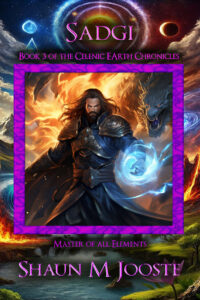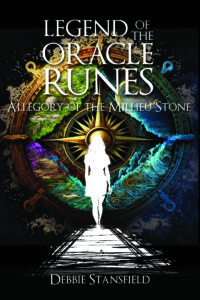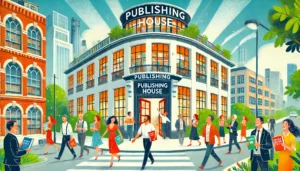
Hybrid publishing has become a popular choice for many authors seeking a balanced approach between traditional and self-publishing. In hybrid publishing, authors get the best of both worlds: the creative control and higher royalties found in self-publishing, combined with the professional services and wider distribution channels typically offered by traditional publishers. This model provides a unique opportunity for authors to manage their careers more independently while still benefiting from industry expertise.
As hybrid publishing continues to gain traction, it’s essential for authors to fully understand the hybrid publishing benefits. These advantages, such as access to professional editing, design services, and distribution, can help authors achieve greater success while retaining ownership of their work. In this article, we’ll dive deeper into the mechanics of hybrid publishing, explore its benefits, and discuss key considerations to help you determine if it’s the right path for your book.
What is Hybrid Publishing?

Hybrid publishing is a model that combines the best aspects of traditional publishing and self-publishing. It allows authors to retain creative control while benefiting from the professional services and support typically offered by traditional publishers. In hybrid publishing, authors are often expected to contribute to the cost of publishing, which is then balanced with a more lucrative royalty split compared to traditional models.
Unlike traditional publishing, where the publisher assumes the full financial risk and ownership of the book, hybrid publishing benefits both the publisher and the author. Authors still maintain significant ownership over their work, including rights to royalties, and have the flexibility to make decisions about the design, marketing, and distribution of their books. This makes it an appealing option for many authors who wish to retain creative freedom while still getting the support they need to succeed.
Many hybrid publishers offer a range of services, such as professional editing, cover design, marketing, and distribution, often tailored to the author’s needs. However, authors need to be aware of the upfront costs involved, which are typically lower than traditional publishing but higher than self-publishing.
By choosing hybrid publishing, authors can capitalize on the hybrid publishing benefits that strike a balance between autonomy and professional support.
Hybrid Publishing Benefits for Authors

The hybrid publishing model offers a range of advantages for authors looking to publish their books. Unlike traditional publishing, where the publisher controls many aspects of the book’s development, marketing, and distribution, hybrid publishing allows authors to maintain a greater degree of creative control while still benefiting from professional services. Here are the key benefits that make hybrid publishing an appealing choice:
Creative Control
One of the biggest benefits of hybrid publishing is the level of creative control authors retain. Unlike traditional publishing, where decisions are made by the publisher, hybrid publishing allows authors to have a say in key aspects like book cover design, title, and overall content direction. This ensures that the author’s vision is not compromised in favour of market trends or publisher agendas.
Higher Royalties
Authors who choose hybrid publishing typically receive higher royalty rates compared to traditional publishing. In traditional publishing, royalty rates tend to be low due to the publisher taking a large portion of the revenue. In hybrid publishing, however, the royalty split is more favourable, and authors can earn a more substantial income from their books. This is particularly appealing for self-motivated authors who want to see a larger portion of the profits from their work.
Professional Publishing Services
While hybrid publishing offers authors creative freedom, it also provides access to professional publishing services that authors would otherwise have to arrange themselves if they were self-publishing. These services may include professional editing, cover design, marketing support, and distribution. Authors benefit from the expertise of seasoned professionals who help ensure that the final product is polished and market-ready.
Flexibility and Control Over Marketing
With hybrid publishing, authors have a greater say in how their books are marketed. This is an important advantage for those who have an existing platform, a strong following, or specific marketing strategies they want to pursue. Hybrid publishers often provide marketing support, but the author remains involved in decision-making, ensuring the marketing efforts align with their personal brand.
Access to Distribution Channels
Hybrid publishing also grants authors access to established distribution channels that would be difficult to access on their own. Hybrid publishers typically have relationships with major online retailers like Amazon, Barnes & Noble, and Apple Books, and can help place the book in these outlets. This expanded reach ensures that the book is seen by a larger audience and can gain traction faster than it would if the author were self-publishing.
Global Reach
Hybrid publishing benefits extend beyond national borders. Many hybrid publishers have global distribution networks, allowing books to reach international markets. Authors are often provided with opportunities to distribute their work in multiple languages and across various regions, making hybrid publishing an ideal choice for authors with global ambitions.
Faster Time to Market
Hybrid publishing also allows authors to move more quickly than traditional publishers. Traditional publishers often take years to publish a book, from acquisition to final release. Hybrid publishers, on the other hand, move at a faster pace, which is especially important for authors who want to capitalize on market trends or who have a timely message to share.
By choosing hybrid publishing, authors can leverage the hybrid publishing benefits that blend the best aspects of self-publishing and traditional publishing. The combination of creative control, higher royalties, professional support, and marketing flexibility makes hybrid publishing an appealing option for many authors who want to maintain their autonomy while benefiting from professional expertise.
Considerations When Choosing Hybrid Publishing

While hybrid publishing offers numerous advantages, it’s essential for authors to carefully consider certain factors before deciding if this route is the right fit for their book. Here are a few key considerations authors should weigh when evaluating hybrid publishing:
Upfront Costs
Unlike traditional publishing, where the publisher assumes the cost of producing and marketing the book, hybrid publishing typically requires authors to pay upfront for certain services. These costs can vary widely depending on the publisher and the services provided. While the author retains a higher royalty percentage, they must be prepared to invest in things like editing, cover design, and sometimes marketing. However, the upside is that hybrid publishing offers transparency in what the author pays for and the level of service they are receiving.
Limited Marketing Support
One of the key benefits of hybrid publishing is that it allows authors to have more control over marketing their book. However, this can also be a challenge. While hybrid publishers often provide some level of marketing support, such as helping with distribution and publicity, the extent of this support is usually less comprehensive than what is offered by traditional publishers. Authors need to be prepared to take a more active role in their book’s promotion, including building a platform, reaching out to influencers, and leveraging social media.
Long-Term Commitment
Hybrid publishing often involves a long-term relationship between the author and the publisher. While this can be an advantage for those looking for ongoing support, it’s important for authors to understand that hybrid publishing isn’t a one-time deal. Some hybrid publishers offer services like marketing and promotional support even after the book is launched, so authors should be ready for a sustained partnership.
Reputation of the Hybrid Publisher
The success of hybrid publishing can vary greatly depending on the reputation and credibility of the publisher. Not all hybrid publishers offer the same level of professionalism, so authors need to thoroughly vet any potential publishing partner. Researching a hybrid publisher’s portfolio, reading reviews from other authors, and checking for industry certifications are crucial steps in ensuring that the publisher has a strong track record of delivering high-quality services.
Copyright and Control
One of the most attractive features of hybrid publishing is that authors retain control over their work, including copyright. Unlike traditional publishers, who often acquire exclusive rights to the book for a set period, hybrid publishers generally allow authors to keep ownership of their intellectual property. Authors should ensure that their contract with the publisher is clear about the terms of copyright, distribution rights, and any potential royalties to avoid confusion down the road.
Competition with Self-Publishing
Hybrid publishing occupies a middle ground between traditional publishing and self-publishing. While authors have more control and better royalty rates than with traditional publishers, they also face competition with self-publishing, which provides authors with even more control and the highest royalty percentage. Authors must decide whether the extra services provided by a hybrid publisher justify the costs involved, or if they would prefer to self-publish and handle everything themselves.
Level of Involvement
Hybrid publishing allows authors to be more involved in the process than traditional publishing, but it still requires significant time and energy. Authors should evaluate how much time they are willing to dedicate to the publishing process, from manuscript submission to book marketing. Hybrid publishers often offer a more collaborative experience than self-publishing, but the author must still be ready to take on a significant role.
When choosing hybrid publishing, authors need to carefully evaluate the potential benefits and challenges to determine if it’s the right fit for their book. While the hybrid publishing model offers a blend of creative control, higher royalties, and professional publishing services, authors should be mindful of the upfront costs, level of marketing support, and long-term commitment. By considering these factors, authors can make an informed decision about whether hybrid publishing aligns with their vision and goals for their book.
How to Find the Right Hybrid Publisher for Your Book

Choosing the right hybrid publisher is crucial to ensuring your success as an author. Since hybrid publishing provides a blend of professional services and greater control over your book, it’s essential to partner with a reputable publisher that aligns with your vision and goals. Here are some key factors to consider when looking for the ideal hybrid publisher for your project:
Research Their Track Record
Before choosing a hybrid publisher, it’s vital to research their history, reputation, and success rate with previous authors. Look for a publisher that has experience with books in your genre and has demonstrated success in getting those books into the hands of readers. Check out the publisher’s website, read reviews from other authors, and look for testimonials. If possible, reach out to authors who have previously worked with them to get honest feedback.
Assess the Services Provided
Hybrid publishers vary widely in the services they offer. Some may provide a comprehensive package that includes editing, cover design, marketing, and distribution, while others may focus more on certain areas. Make sure the hybrid publisher you choose offers the specific services you need, such as professional editing or extensive marketing support. Be sure to clarify what is included in their pricing and ask for a breakdown of all costs involved.
Look at the Publisher’s Distribution Channels
One of the key advantages of hybrid publishing is its ability to provide access to established distribution networks. Make sure your chosen publisher has a robust distribution system in place, both online and in physical bookstores. Ask about their connections with major platforms like Amazon, Barnes & Noble, and independent bookstores, as well as international distribution options. This can make a significant difference in your book’s visibility and sales.
Evaluate the Marketing Support
Marketing is a critical component of book publishing, and hybrid publishers generally offer some level of marketing support. However, this can vary depending on the publisher. While some hybrid publishers offer extensive promotional campaigns, others may provide only basic marketing efforts like distribution on major platforms. Ask your potential publisher about their marketing strategy, including social media promotion, email campaigns, and outreach to influencers and book reviewers.
Review the Contract Terms
Before signing any contracts, it’s crucial to read through the terms carefully. Understand the royalty percentages, any upfront fees, and how long your contract will last. While hybrid publishers offer more control to the author compared to traditional publishers, the contract should still clearly define your rights to the work, distribution rights, and the publisher’s role in the process. Pay attention to the fine print to ensure you’re not agreeing to unfavorable terms.
Check for Flexibility
A good hybrid publisher should offer flexibility in terms of how much involvement the author wants to have. Some authors want a hands-on approach, while others prefer to let the publisher handle most of the tasks. Choose a hybrid publisher that allows for this flexibility, as your level of involvement may change over time based on your experience and needs.
Compare Prices and Packages
Hybrid publishing costs can vary, so it’s essential to compare prices and packages between publishers. Some publishers may charge a flat fee for services, while others may take a percentage of royalties. Be sure to evaluate the total cost of publishing with a particular publisher, including any additional fees for things like book promotion, print runs, or extra marketing campaigns. Ensure that the cost aligns with the level of service and potential return on investment.
Examine the Publisher’s Success with Self-Published Authors
A good hybrid publisher should have a track record of working with self-published authors to elevate their work. Many self-published authors may not have the necessary skills or resources to handle editing, design, and distribution on their own. A hybrid publisher can offer them these services while still giving them control over their work. Look for a publisher who has successfully helped authors transition from self-publishing to professional publishing.
Choosing the right hybrid publisher is one of the most important decisions you’ll make as an author. By considering factors like the publisher’s track record, services offered, distribution channels, and marketing support, you can find the right partner to help bring your book to life. Take your time to research and compare options, and choose a hybrid publisher that aligns with your goals, vision, and needs. With the right support, you can maximize the benefits of hybrid publishing and achieve the success you deserve.
Hybrid Publishing Benefits – The Path to Author Success

In conclusion, hybrid publishing offers a compelling solution for authors who want the freedom of self-publishing with the support of traditional publishing. With benefits ranging from greater creative control to increased distribution reach, hybrid publishing provides authors with the tools and resources necessary to succeed in today’s competitive literary market.
By choosing the right hybrid publisher, authors can navigate the complexities of production, distribution, and marketing, while still maintaining their unique voice and vision. Whether you’re an established author or a debut writer, hybrid publishing presents an opportunity for growth, reach, and profitability.
If you’re ready to explore the possibilities of hybrid publishing and unlock the full potential of your book, now is the time to take the next step. Don’t let the traditional publishing route limit your success—embrace the hybrid model and see where it takes your writing career! Contact CEP for our hybrid book publishing services.












































